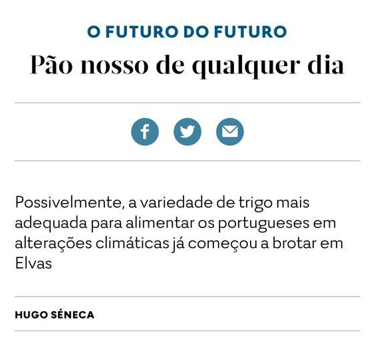Wheat & Climate Change
Head of the Plant Ecophysiology and Metabolism at ITQB NOVA and member of the GREEN-IT Research Unit, Rubén Vicente looks to understand how climate change affects crop performance. One of the projects led by the team looks to identify the most promising varieties of wheat, under the context of climate change, as Rubén explains in the most recent article of Expresso.
Rubén and his team take a multi-level approach to comprehend the responses to abiotic stress, taking into account the whole plant. They combine agronomic, physiological, and molecular analyses to understand the mechanisms involved in nutrient uptake, allocation, and response to abiotic stresses.
This highlighted project focuses on several different varieties of wheat cultivated in Portugal over the last 80 years. At the INIAV station in Elvas, where the field trials occur, the researchers use drones with different high-resolution cameras as well as ground-level sensors to gather agronomic components and phenotyping data, which allows them to analyze the genetic advance and identify key traits that contribute to crop improvement. “Climate change is likely to bring drought and temperature rise. And we want to choose the wheat varieties that produce the most" states Rubén Vicente to Expresso.
Read the full article here.

Credits to Expresso


